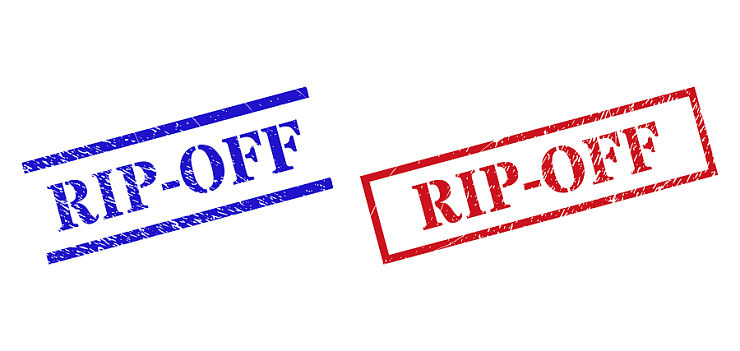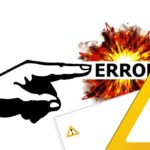
When you need to get copies of your bankruptcy papers, there’s a long line of people ready to rip you off. I mean, really rip you off.
I’d list the companies prepared to overcharge you, but I don’t want to give them any more visibility than they already have.
You may need to get bankruptcy papers in connection with a new real estate loan, a credit application, or to fight erroneous credit reporting.
Whatever your need, good old American entreprenuership comes through. Multiple companies are willing to charge you up to $50 for bankruptcy papers available for 10 cents a page from the court. Or for a maximum of $3/document from PACER.
Not to mention that you probably got the documents free from your attorney when you filed.
But nothing stands in the way of companies offering to overcharge you for something you can do for yourself.
Get your bankruptcy papers yourself
Here’s what the bankruptcy court where I practice in Northern California says about how to get copies:
First, if you don’t need certified copies, the easiest way is through the internet at PACER(Public Access to Court Electronic Records), an online service that lets you access, download, and print copies of case and docket information from all federal courts.
You have to first register for a PACER account free of charge at www.pacer.gov. PACER then charges ten cents ($0.10) per page for copies, the same that the court charges but without the trip to the courthouse or parking costs. For larger documents, the maximum charge per document is capped at $3.00 (the equivalent of 30 pages).
PACER also charges for name searches, reports, such as lists of cases, and transcripts of court proceedings (when available online).
If your charges do not exceed $15 in a quarter, your fees are completely waived, so copies printed that quarter are free.
What bankruptcy papers prove
One of the ironies of the demand that you prove a debt was discharged by providing your “bankruptcy papers” is that the documents requested don’t prove a lot.
The bankruptcy petition proves that you filed a case, but not what the case involved, or even that it progressed to a conclusion.
The creditor matrix, or master address list, proves who got notice of a bankruptcy case. Generally, only creditors with notice of the case have their claims discharged.
The discharge order shows that a discharge was entered, but not, frustratingly, what was discharged in the case. Some debts simply aren’t dischargeable. Some survive if the creditor challenges the discharge. But the discharge order doesn’t include that detail.
If you need an overview of what else happened in a bankruptcy case, the court’s docket is also available online. It shows every document filed in the case. It provides clues as to challenges to or limitations on the discharge. Again, you can access the docket in your case via PACER.
The unlisted debt collector
Often questions come up about whether a debt, now held by a debt collector or debt buyer, was discharged.
Three legal principles support the conclusion that the person now holding the claim is out of luck.
- Debt collectors are generally agents of the original creditor. So, if you gave notice to Big Bank Credit Card Company of your bankruptcy, that knowledge of your case is imputed to the agent. Result, debt listed and discharged, absent a successful challenge to dischargeability.
- A debt buyer who buys a claim that is unenforceable because of a bankruptcy discharge gets no more rights than the seller of the claim had. Again, debt discharged because original creditor got notice.
- Bankruptcy case law in most judicial circuits hold that a creditor who didn’t get notice of the bankruptcy case is discharged anyway if there was no payment to creditors in the case and the creditor had no claim that the debt was nondischargeable.
So, if a debt collector attempts collection after bankruptcy, look for the name of the original creditor on the notice. That’s the proof that the listing of the original creditor on the creditor matrix makes the debt in the hands of the collector unenforceable.
Don’t be ripped off
Save filed copies of your bankruptcy papers and you can avoid this entire issue of getting copies of your bankruptcy documents.
If you have paper copies, scan them to pdf and save them, preferably in the cloud. Or, ask your attorney for electronic copies.
If you find yourself without the papers you need for a transaction, get on PACER and get them yourself, at little or no cost. Don’t pay outlandish prices for something the government makes available for free.
More
What was discharged in my case?





